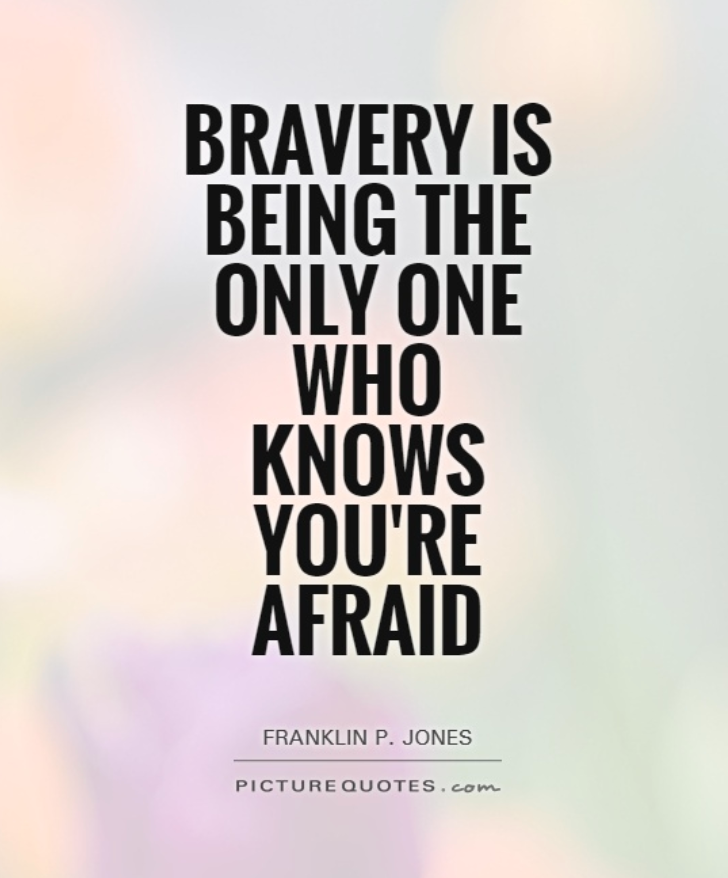As an accent to the alluring arrangement of Alliterative Autumn, Self-Help Sunday is becoming Therapy Thursday.
I’m just joking with you, jolly gents.
There is no known notification for a nullification of native norms in this noble news network.
But the kids complained I kept my clips clamped and couldn’t keep composure and cover the calendar’s calling by constructing a credible composition.
Last Sunday, I said, “I shall spin a special spicy spectacular for the chivalric citizens of the superior species!”
It’s coming, complete with convincing caricatures of conniving card-carrying composites of common countrymen with clenched chompers crying of catastrophic conundrums.
Don’t Talk About Your Problems
Modern men don’t understand that to be a man is to be a brick wall, when it comes to showing weakness.
A man should not talk about his intimate problems publicly. He should not talk about them with any woman, ever.
Maybe you should think of yourself as a dam, and consider that your emotions are the liquid kept behind it and that if you crack, it is the people you care about who are going to drown.
You might not feel strong. But your job is to be strong. That is what a man is. If you cannot be strong inside, then you need to pretend to be strong. The whole “fake it til you make it” phenomenon is real, and you will become stronger as you pretend to be strong.
In general, anything you cannot do is a weakness, as an absolute matter of fact. Even if you shouldn’t be able to do the thing, because you weren’t trained in it, you are still weaker in that you are not able to do whatever the thing is. If another man is able to do the thing you can’t do – and somewhere there is a man who can – then in that case, you are lesser than that other man who can do the thing you cannot do.
Obviously, some problems are lesser than others.
If you are:
- Failing math class
- Having a hard time rebuilding the carburetor on your truck
- Getting wrecked in Warzone
That is different than:
- Struggling to find a job
- Getting migraine headaches
- Struggling with a lawsuit
And those things are different than:
- Trying to deal with having been sexually molested as a child
- Having body image issues
- Being afraid your wife is planning to leave you
- Having a hard time controlling your drinking
But even with the small things, you need to be aware that this is a weakness, and you need to guard it as much as is appropriate.
The default should be that you don’t really ever talk about any problem that you have other than the very lowest level of problem, and when you talk about those problems, you do it in a jokey way that says they’re mere annoyances, situations where things are actually only causing you problems because they are so far below you. (Don’t be cocky or boastful, however. This always indicates insecurity to anyone who knows what’s going on, and is also just generally unpleasant.)
Basically: everything that you’ve been indoctrinated about how men try to cover up their problems and how they need to learn from women and open up and share their weaknesses is the exact opposite of the truth. The marketing of this idea that men “need to learn to talk about their feelings” was a plot by Jews and women to weaken men.
The best way to guard against appearing weak is to deal with the weakness. Become more competent. Learn to do the things you are required to do. Learn to manage your emotions.
But there will always be things you can’t do, regardless of how generally competent you are. There will be situations you have difficulty managing. There will be times when you are afraid, or angry, or depressed. All of that is your business, and no one else’s, and it should always be hidden, like a sexual fetish.
Understand this: when you display weakness, you become weaker.
However, you are not actually a brick wall, despite the fact that you should appear to be one. So there will be times when you need to spill the beans. If you need to spill the beans, you need to do it among someone you trust. That person is not ever a woman, in any situation. It is definitely not your wife and it is definitely not your mother. It might be your brother or your cousin. It’s not ideally your son, but if you ever end up in a position where you have a son, and he is over 30, then it could be. A thirty-year-old man should no longer view his father as a god, and you should have made him strong enough that he can manage seeing your weakness.
If you are going to share a problem, it must be with another man with whom you have built a relationship of trust. These relationships are sometimes going to be more obvious and develop more naturally with men that you are related to, especially in these modern times when women and homosexuals have done such grave damage to the process of male bonding.
Ideally, as we’ve said an infinite number of times on this website, you have men in your life who you trust implicitly, who you can share your inner sorrows with, and trust that they will not betray you. If you have not built these types of relationships with other men, then this should be your primary social purpose. It is normally done alongside the process of building a career. You have to have these kinds of relationships with men if you are thinking about becoming serious with a woman. If you have no men to rely on and to fall back on, a woman will eat you alive.
You will only ever have a few of these men in your life, through the whole length of the process of life, and the older you get, the more difficult it is to form these relationships with other men. Ideally, when you’re sixty, you will still have contact with a kid you knew when you were in sixth grade who you can call up and spill the beans to without fearing he will do something other than listen, and give you whatever solace he is able to give.
Of course, you can always tell a priest anything you need to get off of your chest, but this is not the same thing as discussing your problems with someone you know closely, someone who understands you, someone who can give you feedback that is meaningful.
As you develop relationships with other men, it is natural for you to share more of your hardships with them, as commiseration is a way in which men bond. The degree to which you share things about your problems with another man should represent the degree to which you trust him. That is something you have to gauge yourself, but know this:
- You will not ever actually develop a relationship with another man if you never share your hardships
- If you do nothing but share your hardships you will repulse him
Beyond this very specific context, you need to just stay closed.
You can bullshit with anyone, joke around, discuss your interests. But you must put up a face of strength.
This will make you stronger.
You’ve lived your entire life buried in nonsense designed to hurt you. You’ve been told that it is good for you to share your feelings, and what’s more, society subliminally indoctrinates you into behaving this way, as you view other men doing it in real life and in entertainment media.
So I want to remind you now as I always remind you when I give improvement advice: you should not feel guilty or ashamed for things you’ve already done. You didn’t know what I just told you because no one told you what I just told you.
Understanding and Developing Male Friendships
I’ve laid out what I’ve laid out, but all of that is useless if you don’t have close male friends.
The issue of how men relate to one another was a big part of my now-canceled book. It’s a frightening thing, but the truth of reality is that most men, millennials and younger, have as little understanding of relationships with other men as they do of relationships with women. I decided that simply laying out, in some specific detail, how men form relationships would be beneficial.
The book was canceled because a very large part of it had to do with travel and starting small businesses, and when the coronavirus lockdown happened, it became more than evident to me that these things would no longer be a part of people’s lives. The rest of the material in the book was simply life advice, and will need to be finished and published at some point in the course of the next year.
The sections on male friendships are not finished. They are partially finished. But when I realized the book couldn’t be published based on my current notes, I quit working on it. Writing this thing up that I’ve just written above has got me thinking those sections should just be finished and published immediately. It’s of course very difficult to find time to do such things these days, given that I’m now the only writer on the site, and am trying to keep something like the same output as usual. Furthermore, I’ve taken on a second job, because I am so broke. But I will try to get this together. It’s probably over 15,000 words, and that takes a significant amount of time.
But here’s the thesis: The basic fact of male friendships is this: they are based on trust. The trust comes from a belief in the willingness of the other person to sacrifice for you, and thereby leads to a willingness to sacrifice for the person who would sacrifice. The basic form of these friendships is that of two men who have each other’s backs in a combat situation, so it is literally a situation of needing to be able to trust the other man with your life. It’s a very basic, primitive function of our psyche, this ability to develop implicit trust, which is one of the reasons it is so difficult now.
Conversely, a relationship with a woman is not based on trust, and you cannot ever actually trust a woman. That is why we used to use contracts for marriages, and sex was not allowed until the contract had been signed. A woman is always doing nothing but trying to get something from you, and there is very little she actually has to offer. The fact that men will now say things like “my wife is my best friend” shows how bastardized our social order is. Men’s relationships with other men tend to be shallow, and mostly based around little more than a desire to discuss shared interests and to not be alone all the time.
Primarily, the male relational process was disrupted by women, but homosexuals have also played a large part in this, creating a situation where men fear if they get too close to another man, it somehow becomes gay. There is also just a generalized alienation in society, largely caused by a culture of divorce and other forms of feminism, as well as multiculturalism and atheism, that leads to men acting selfishly, which then prohibits friendship. Divorce has created a new reality where all relationships are transactional (meanwhile, we’re supposed to believe that there is some type of sex that isn’t transactional, because of the moral purity of women).
The other major driving factor in this alienation is that a rise in material comfort has created a situation where people feel that they do not need each other anymore, so relationships become disposable. The fact that this material comfort is about to disappear, and we are really going to start needing each other again, makes it all the more important that people begin to understand trust between men.
Recently, a minor celebrity “feminist right-winger” posted a repulsive video on the public internet crying about how his girlfriend left him. It’s possibly the most humiliating thing I’ve ever seen in my life, and he did this willingly, to himself. It was clear to me he didn’t have a single real male friend, as no man who cared about him would have let him publicly humiliate himself like this. If a man saw that someone he actually cared about had uploaded this video, they would have went to his house and refused to leave until he took it down. More than that, no real friend would have allowed him to be involved in the kind of relationship he describes himself as having before this woman left him.
Maybe he didn’t understand male relationships because of his feminist orientation. Feminism is as much a state of being as it is any particular idea or belief, and I don’t think it is possible for someone who is a part of this to relate to other men. But the flip side of that is that no man who has solid, healthy relationships with other men can ever be a feminist.
This is to say: our problems with women are very much tied to our incapacity to relate to and bond with other men. It feels almost like a form of vulgarity to break these human processes down. It is a kind of deconstruction of something sacred. But it is clearly necessary, given what we are seeing in the society, and I’m not sure anyone has ever really done it.
So, that’s the preview. Again, I will do my best to put this together quickly, but as it amounts to writing a short book, it’s going to be difficult to find the time.






